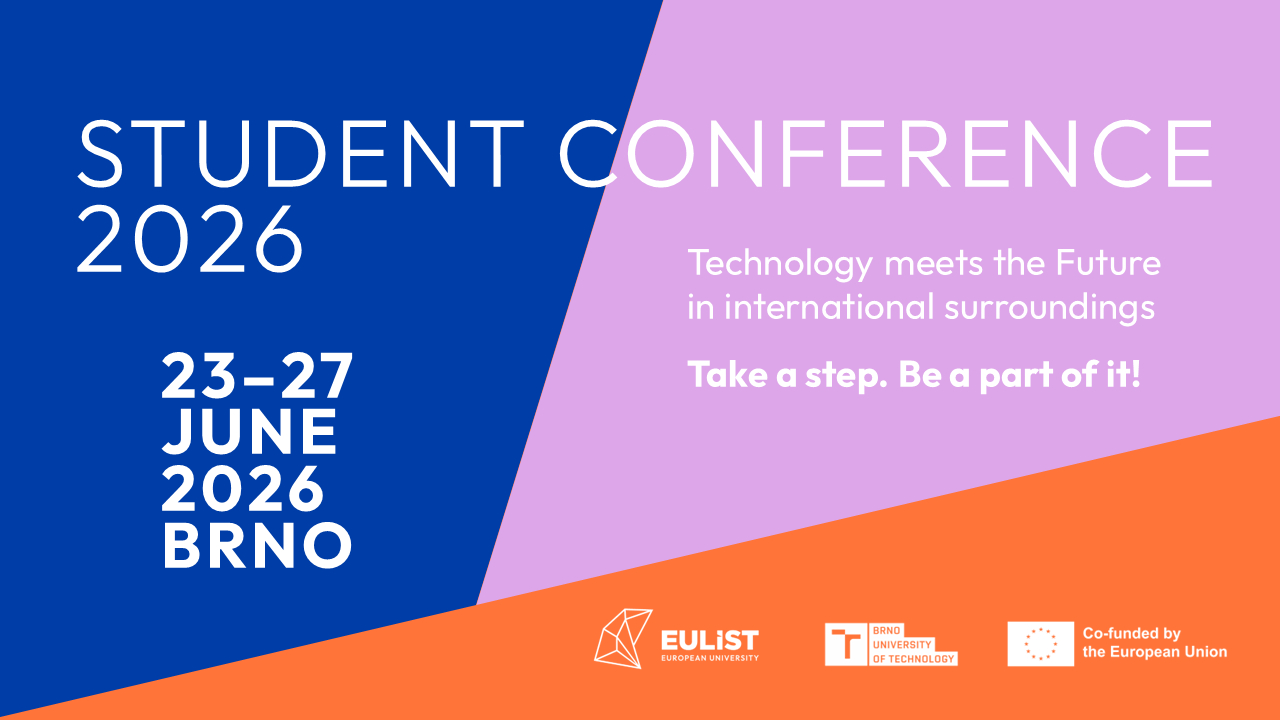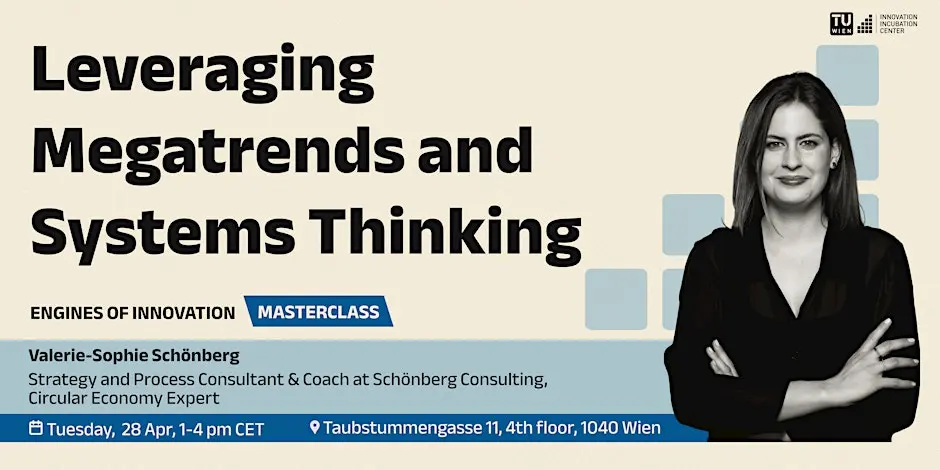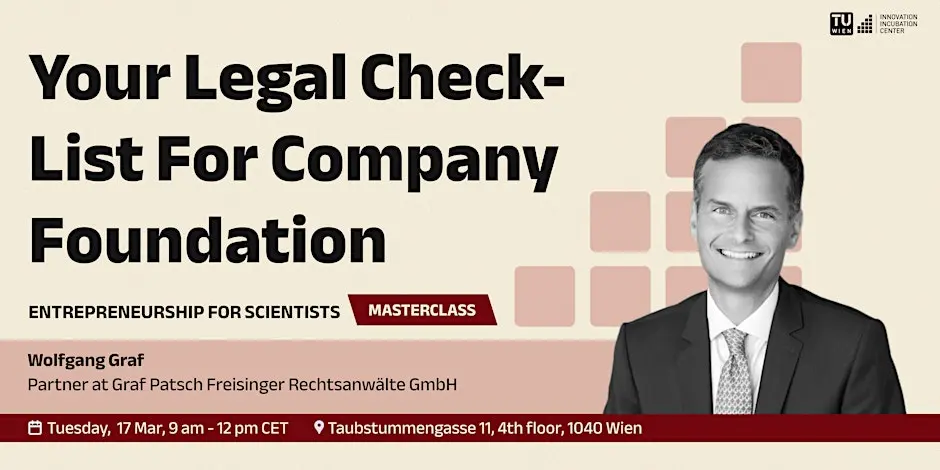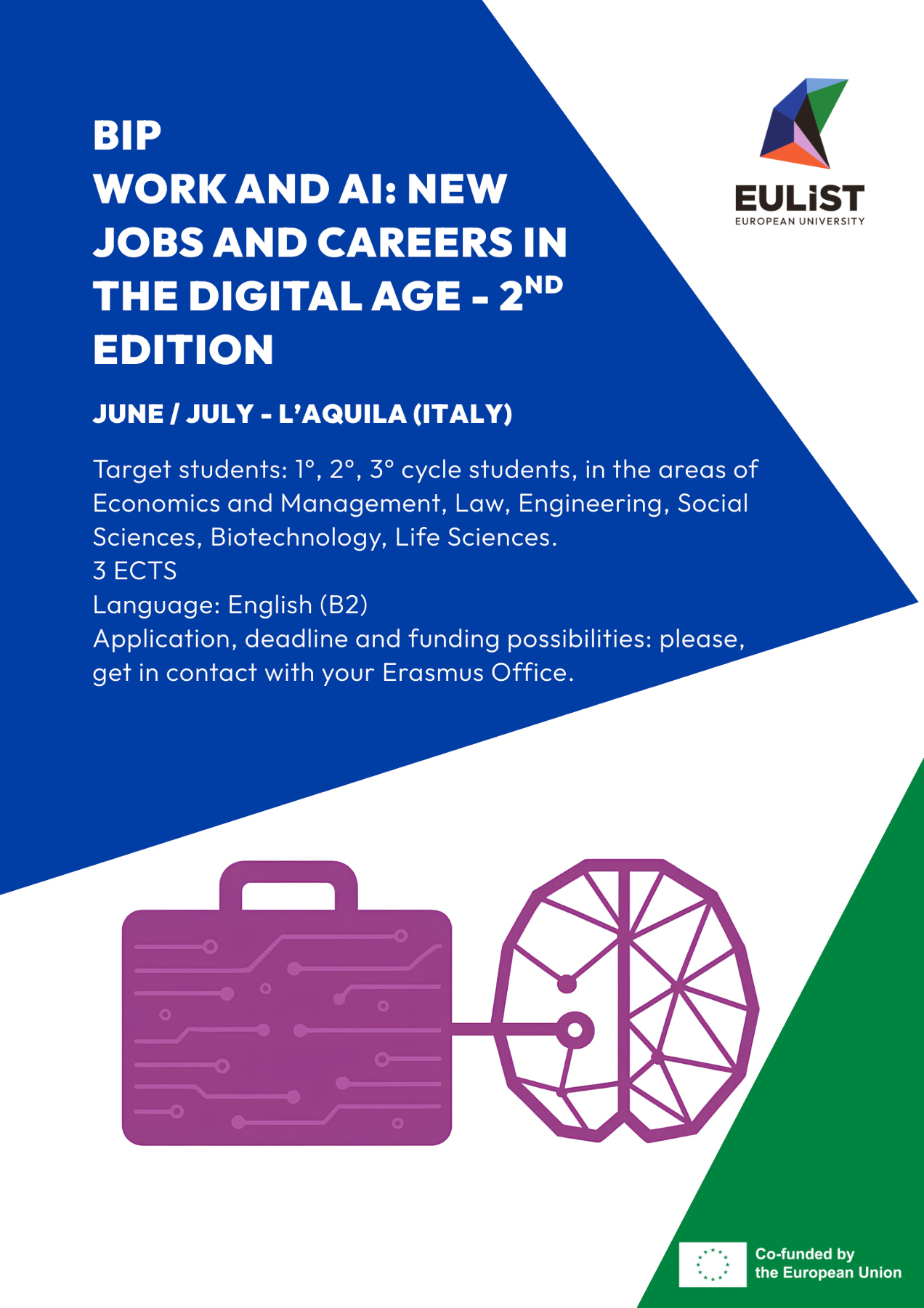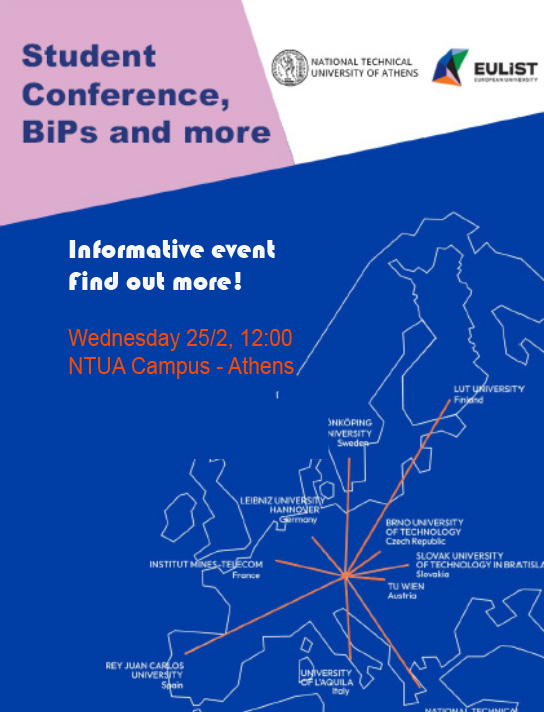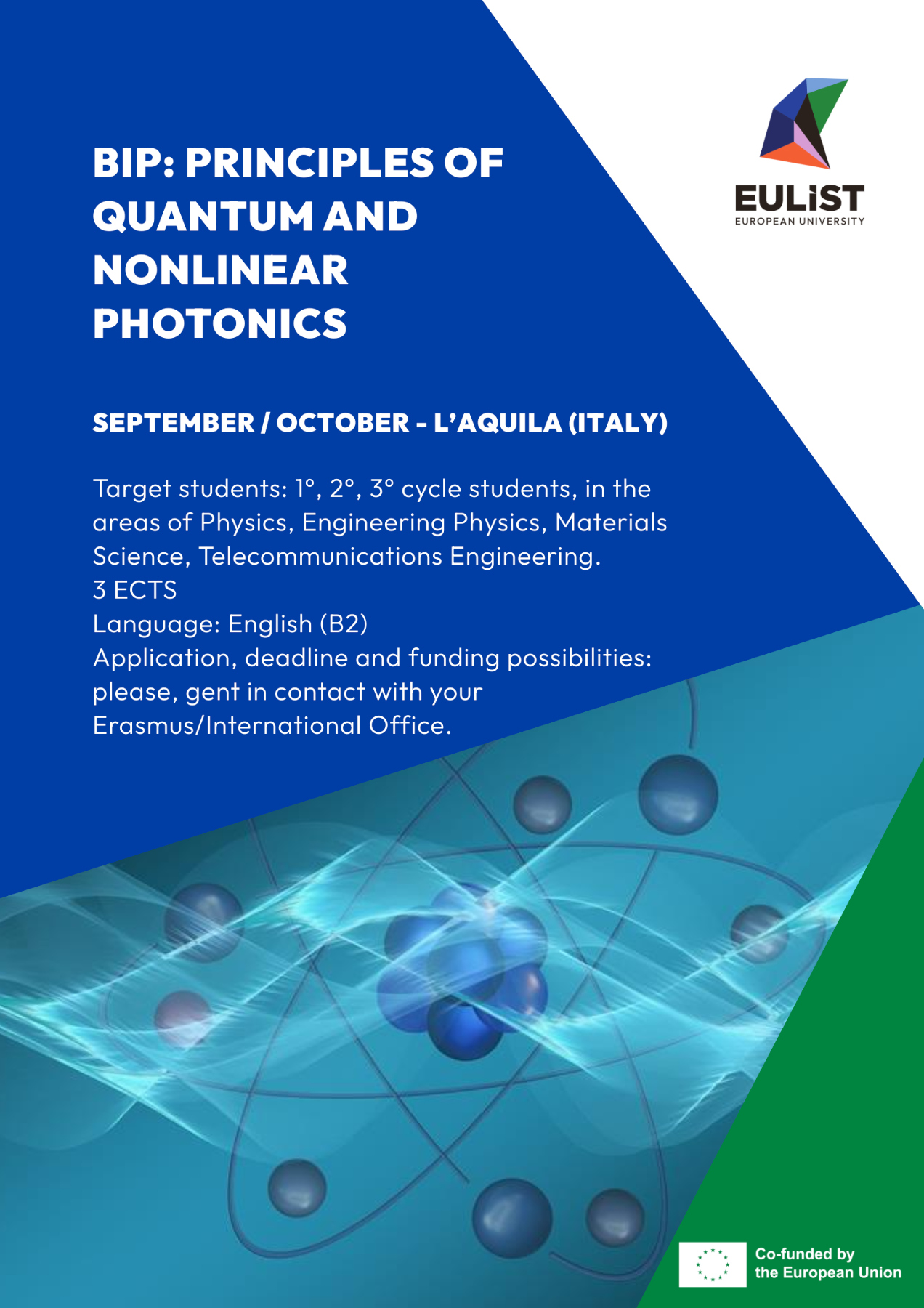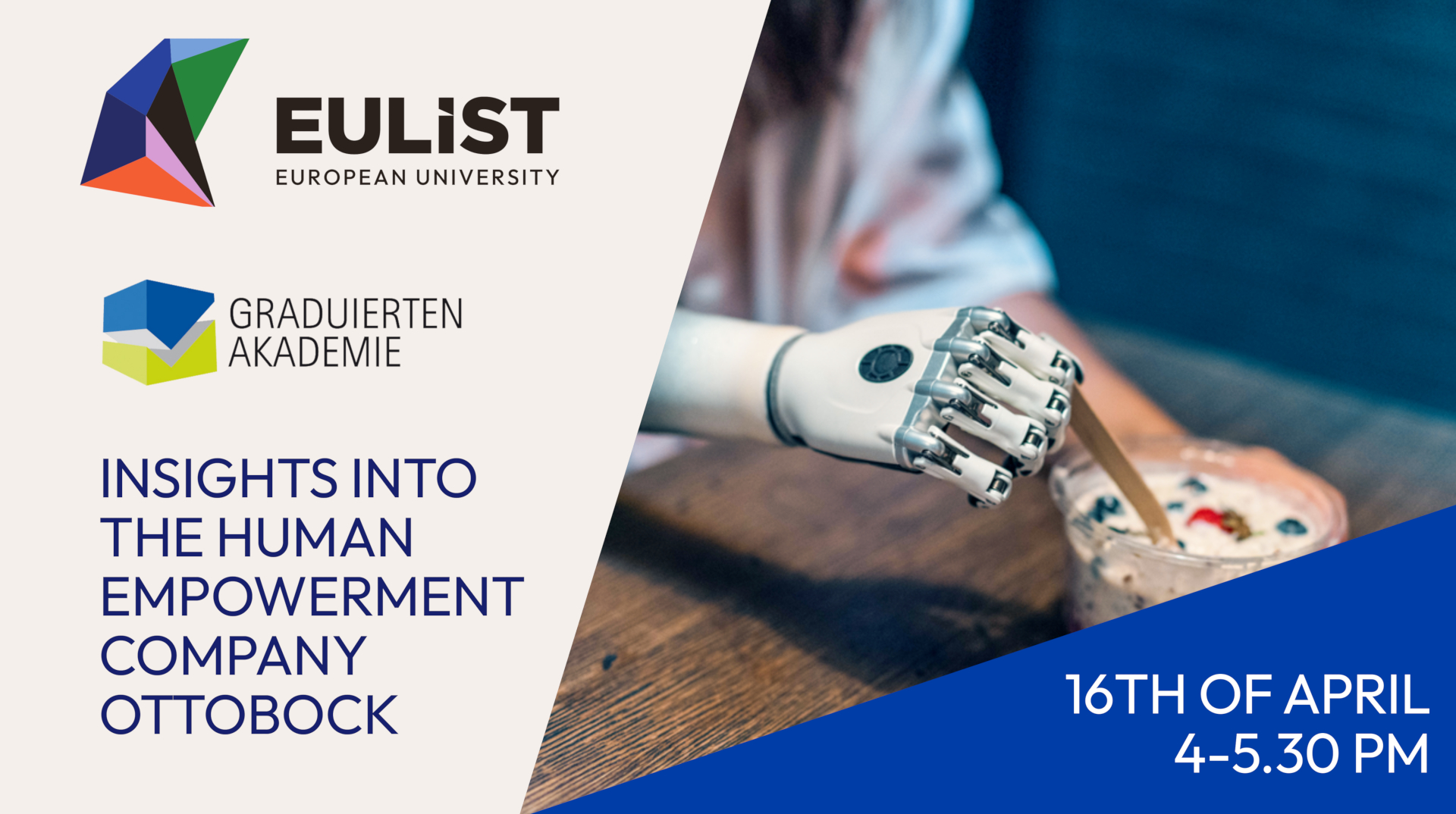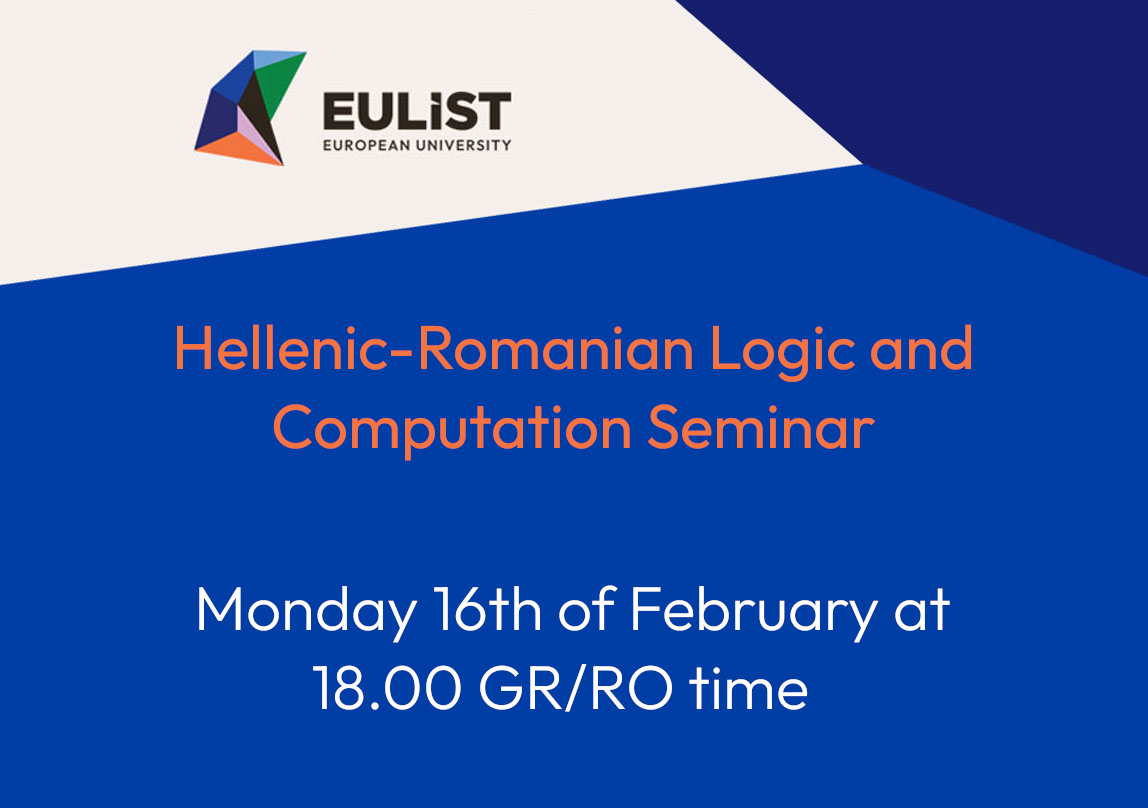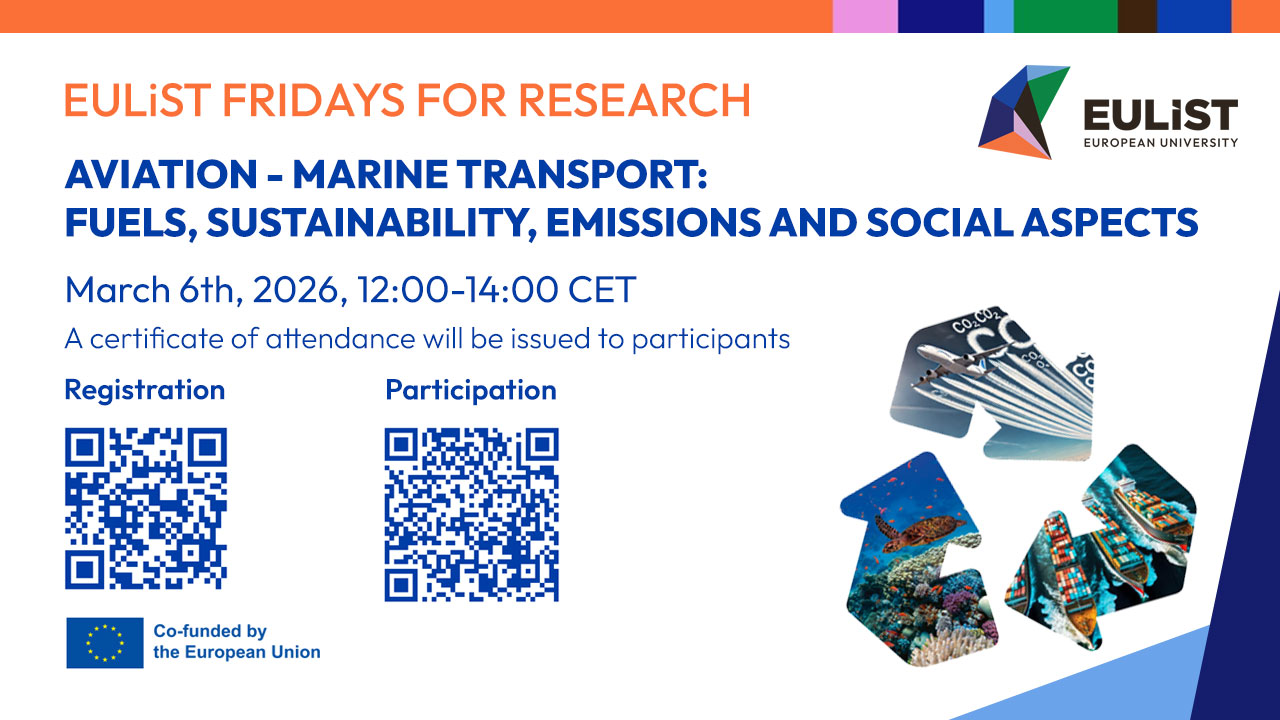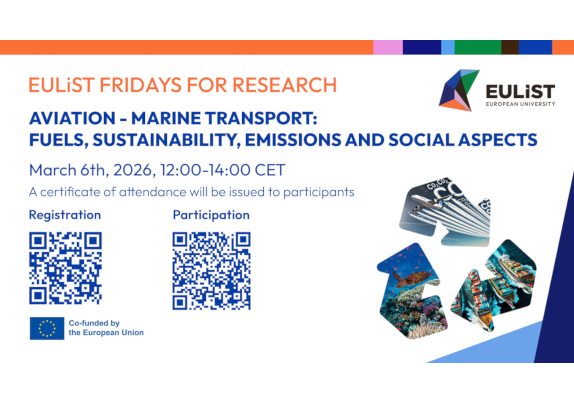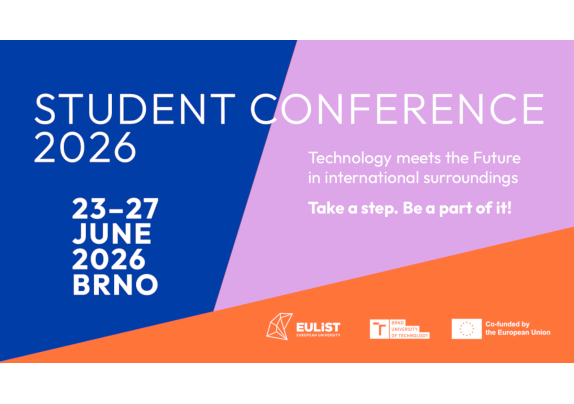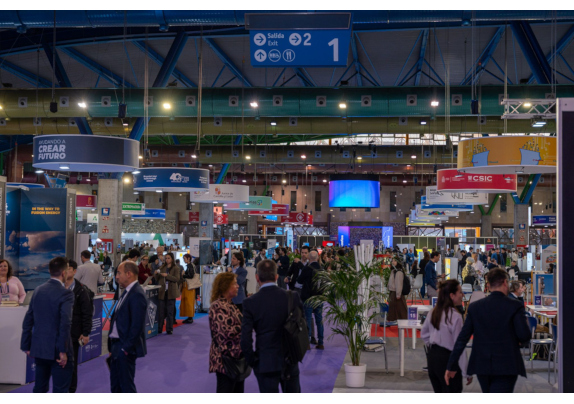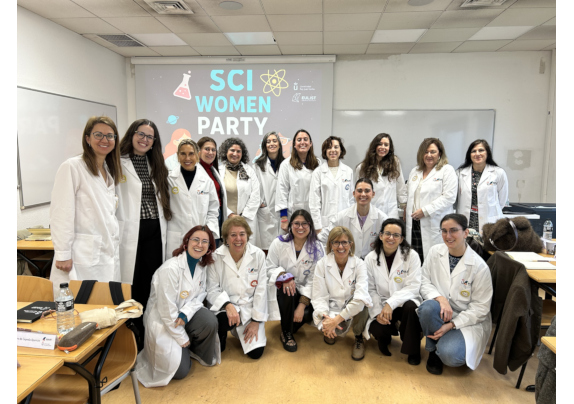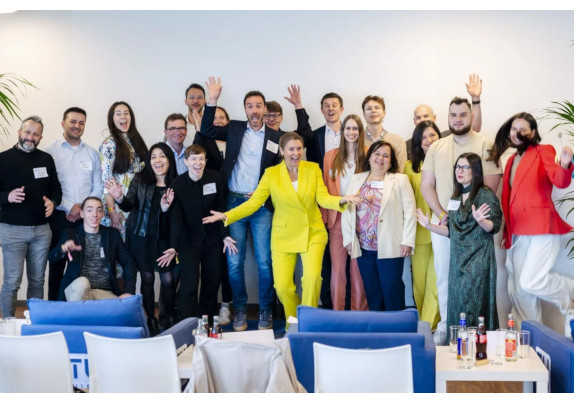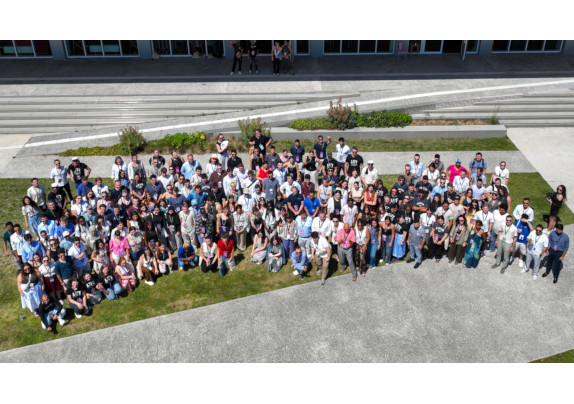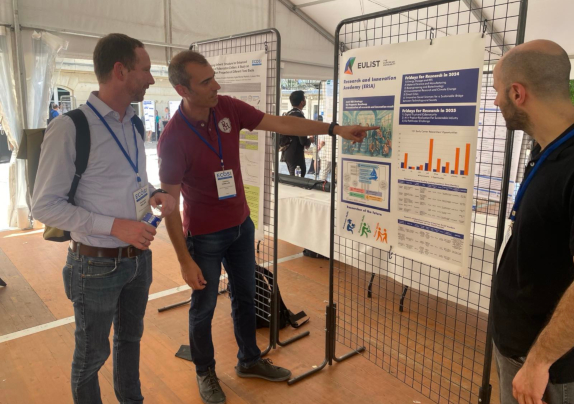EULiST Student Conference 2026: Take a step. Be a part of it!
Are you ready to shape the world of tomorrow? After two successful editions in Vienna and Douai, the 3rd EULiST Student Conference is heading to Brno.
Join us for an unforgettable week of innovation, networking, and intercultural exchange!
The 3rd EULiST Student Conference is officially calling for passionate students from across our network of 10 European universities.
This year, we dive deep into the theme “Technology Meets the Future,” exploring how digital advancement and human creativity can solve the challenges of the coming decades.
Why Should You Join?
This isn’t just another academic event. It’s a chance to:
- Learn from the Best: Attend inspiring keynote speeches and engage in lively panel discussions with experts.
- Get Hands-on: Participate in interactive workshops where you can apply your skills to real-world problems.
- Build Your Network: Meet over 200 fellow students from all over Europe and start friendships that last a lifetime.
- Experience Brno: Explore the vibrant student city of Brno, known for its unique atmosphere and technological spirit.
Key Information
- Date: 23 – 27 June 2026.
- Location: Brno, Czech Republic.
- Participation Fee: None. Travel, accommodation, and catering are fully covered for selected participants!
Who Can Apply?
The conference is open to all Bachelor, Master, and PhD students within the EULiST university network.
How to Apply
Applications are open from 1 March until 1 April 2026. Don’t wait too long – seats are limited!
REGISTER HERE FOR THE CONFERENCE
